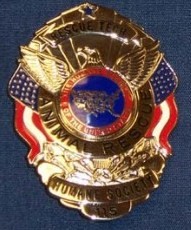Equine Expert on HSUS Raid: Lots of Horsing Around
 Amidst all of the chatter about our Academy Awards commercial, some important news came forward last week concerning an alleged case of horse cruelty at a Maryland farm.
Amidst all of the chatter about our Academy Awards commercial, some important news came forward last week concerning an alleged case of horse cruelty at a Maryland farm.
Last April, the Queen Anne’s County Animal Control and HSUS conducted an allegedly warrantless seizure of 133 horses from Canterbury Farm. We heard a lot at the time to have us skeptical, but we wanted to see how it all played out. And now we have more information.
The law firm representing the defendant, Marsha Parkinson, announced last week that she had reached a deal whereby most of the charges would be immediately dropped and the rest of the charges struck pending a probation before judgment. (As we understand it, that means she pled “no contest,” and if she meets certain conditions during a probationary period, the remaining charges may be expunged.) Parkinson will get back more than 60 of her animals—clearly, something that wouldn’t have happened if she was some Michael Vick-esque abuser.
But even more interesting is that the defense recruited equine scientist Dr. Don Henneke to offer his opinion of the evidence collected during the seizure. “At the time of the seizure,” Henneke stated, “the horses in question were not being neglected and should not have been removed from the care of Ms. Parkinson.”
That’s in stark contrast to HSUS’s claim at the time of the seizure that “every horse on that property is suffering from some level of lack of care.” So what gives him the authority to make that conclusion?
Henneke developed the internationally used “Henneke Scale,” or Body Conditioning Scale (BCS), for horses. In contrast to HSUS’s claim that the horses were “neglected, starving” and that rescuers arrived “just in time,” Henneke determined that “the overall health of the horses appeared to be adequate.”
Henneke further determined that the horses were “exposed to unnecessary stress due to poor horsemanship on the part of the people conducting the seizure” and that the “evaluators appear to have little knowledge of the accurate application of the BCS.”
Ouch.
Finally, Henneke stated that after the seizure the animals “appear to have gone through a prolonged period of stress” and that the body conditions had not significantly increased in most of the horses after a few months.
So, in summary, a renowned equine scientist who developed a scale for measuring bodily health in horses was prepared to testify that the horses shouldn’t have been seized and that the rescue personnel were basically incompetent.
You can read his full statement here, and there are more details than we’re listing in this piece in the interest of space. But it certainly indicates that HSUS’s assertions were a little hyperbolic, to say the least.
An interesting side note: HSUS claims that three donors “help[ed] finance the operation.” But an interview with one of the assisting rescue groups indicates that they helped bear a lot of the post-seizure cost—$38,000, in one group’s case. What, HSUS couldn’t spare some of its $200,000,000 in assets?
This is yet another black mark on HSUS’s animal rescue program. While a great idea in theory, we have to wonder if it succumbs to biases or pressure to produce sensationalist press releases.
Consider the South Dakota case in which the search warrant was later thrown out. HSUS is now facing a federal lawsuit.
Then there’s the Denisa Malott case in Arkansas, which resulted in the seized horses allegedly being neglected. Malott later asked the FBI to investigate whether HSUS was in violation of the Animal Enterprise Terrorism Act.
And let’s not forget that two former members of HSUS’s rescue team spilled the beans on its faux badges and media tactics.
There’s a definite need for a national animal rescue team. We just have to wonder if HSUS is the best group to run it.



